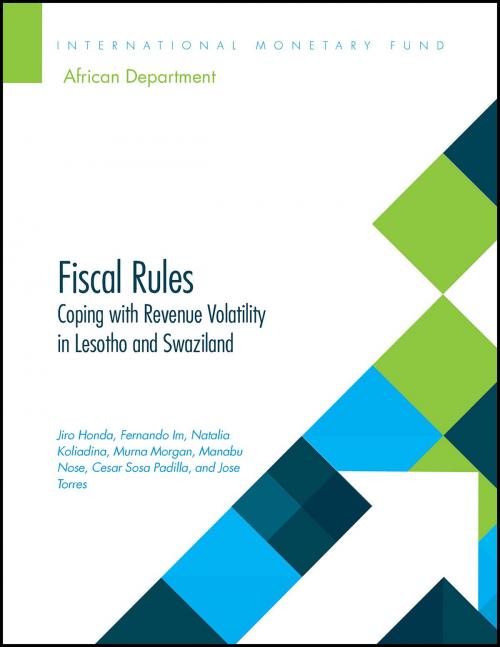Fiscal Rules
Coping with Revenue Volatility in Lesotho and Swaziland
Business & Finance, Economics, International Economics, Nonfiction, Social & Cultural Studies, Political Science, Politics, Economic Policy| Author: | Jiro Honda, Manabu Nose, Cesar Sosa Padilla, Jose L. Torres, Murna Morgan, Fernando G Im, Natalia A Koliadina | ISBN: | 9781484318881 |
| Publisher: | INTERNATIONAL MONETARY FUND | Publication: | September 12, 2017 |
| Imprint: | Language: | English |
| Author: | Jiro Honda, Manabu Nose, Cesar Sosa Padilla, Jose L. Torres, Murna Morgan, Fernando G Im, Natalia A Koliadina |
| ISBN: | 9781484318881 |
| Publisher: | INTERNATIONAL MONETARY FUND |
| Publication: | September 12, 2017 |
| Imprint: | |
| Language: | English |
Over the past decade, Lesotho and Swaziland have faced significant volatility in their fiscal revenues, owing to highly unstable Southern African Customs Union (SACU) receipts. Based on model analysis, this paper explores the advantages of implementing fiscal rules to deal with such volatility. It finds that the use of a structural balance target could smooth the growth impact from revenue shocks while helping preserve sufficient international reserves during bad times. From a long-term perspective, it suggests possible welfare gains from introducing fiscal rules. Last, it concludes that, based on experiences in other countries, developing strong institutions and improving public financial management are necessary steps to ease the transitions to a rules-based fiscal policy framework.
Over the past decade, Lesotho and Swaziland have faced significant volatility in their fiscal revenues, owing to highly unstable Southern African Customs Union (SACU) receipts. Based on model analysis, this paper explores the advantages of implementing fiscal rules to deal with such volatility. It finds that the use of a structural balance target could smooth the growth impact from revenue shocks while helping preserve sufficient international reserves during bad times. From a long-term perspective, it suggests possible welfare gains from introducing fiscal rules. Last, it concludes that, based on experiences in other countries, developing strong institutions and improving public financial management are necessary steps to ease the transitions to a rules-based fiscal policy framework.















